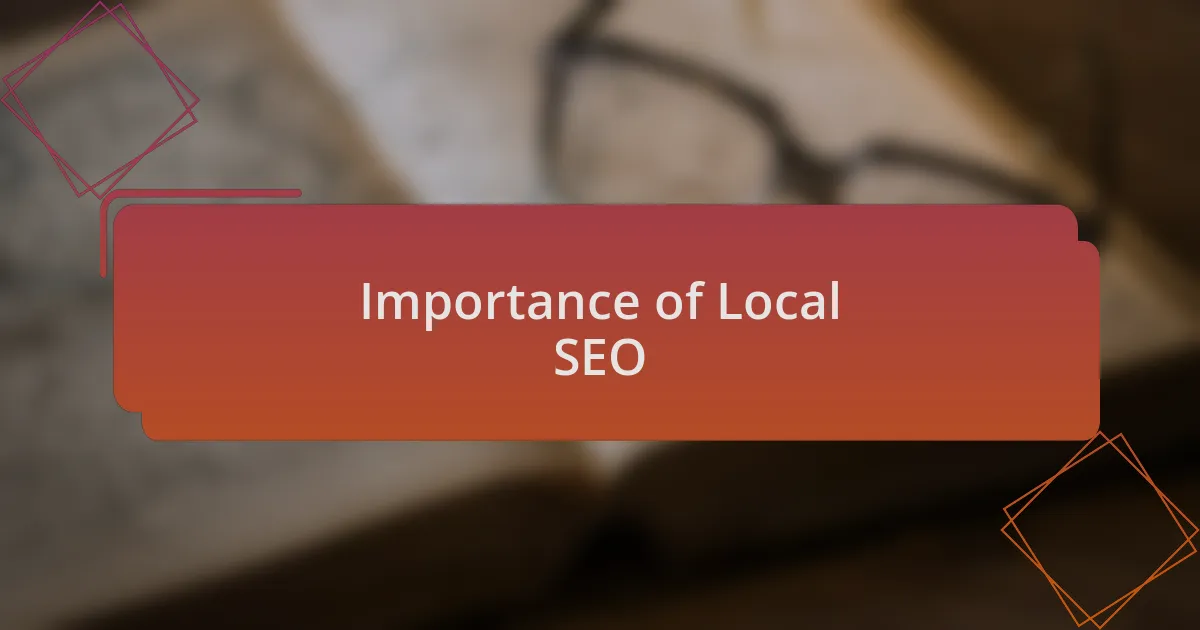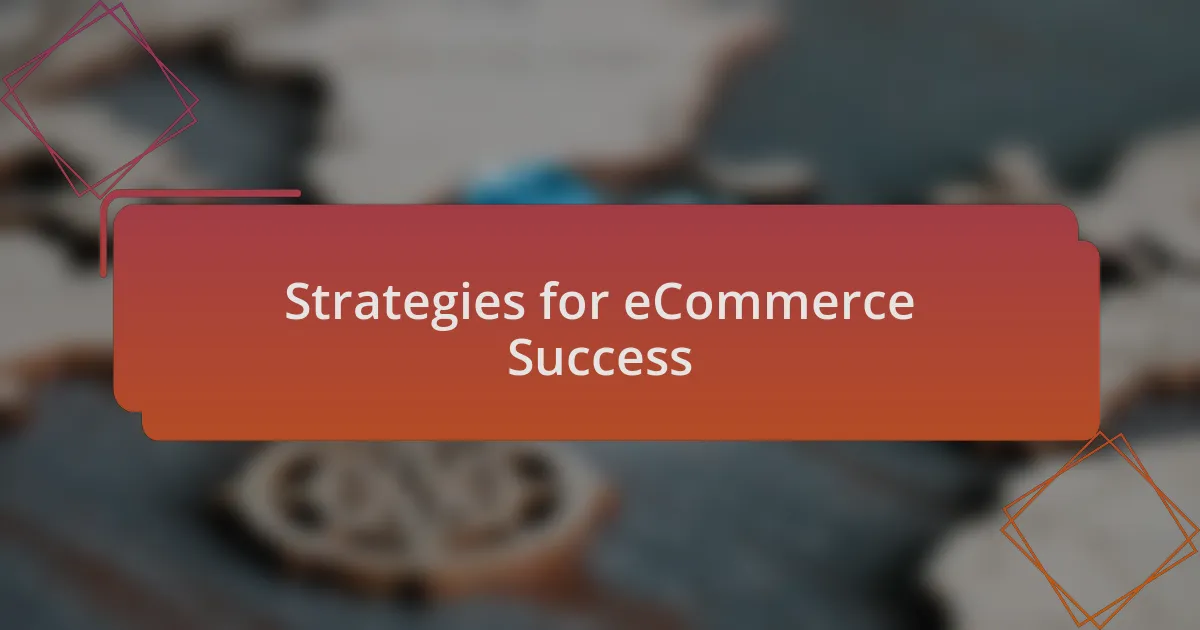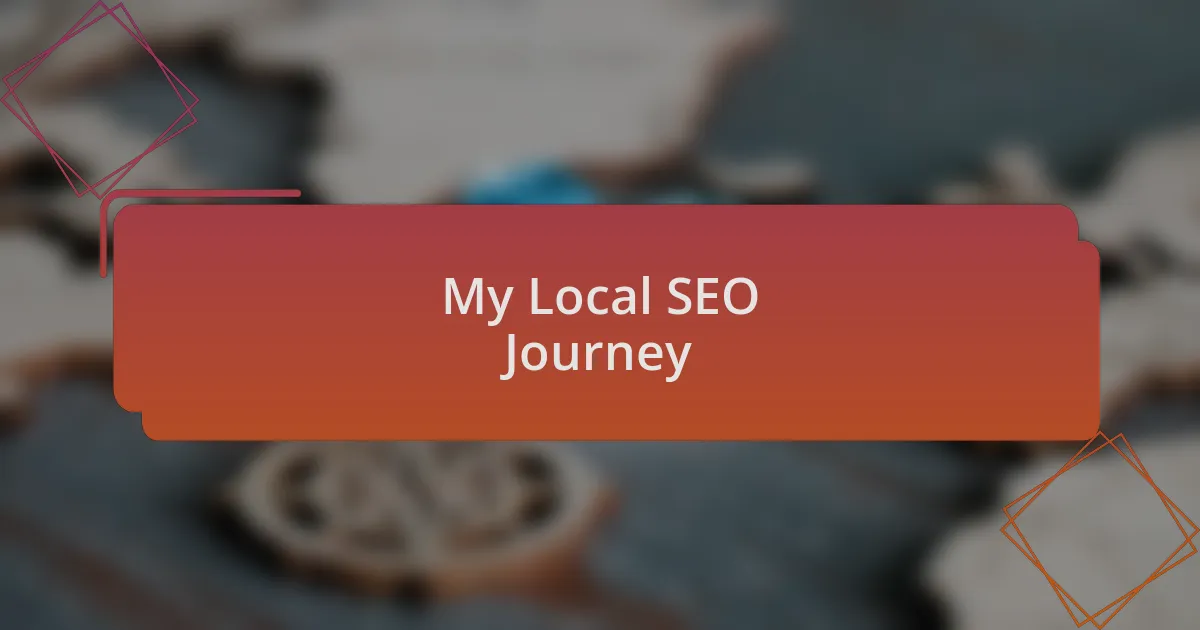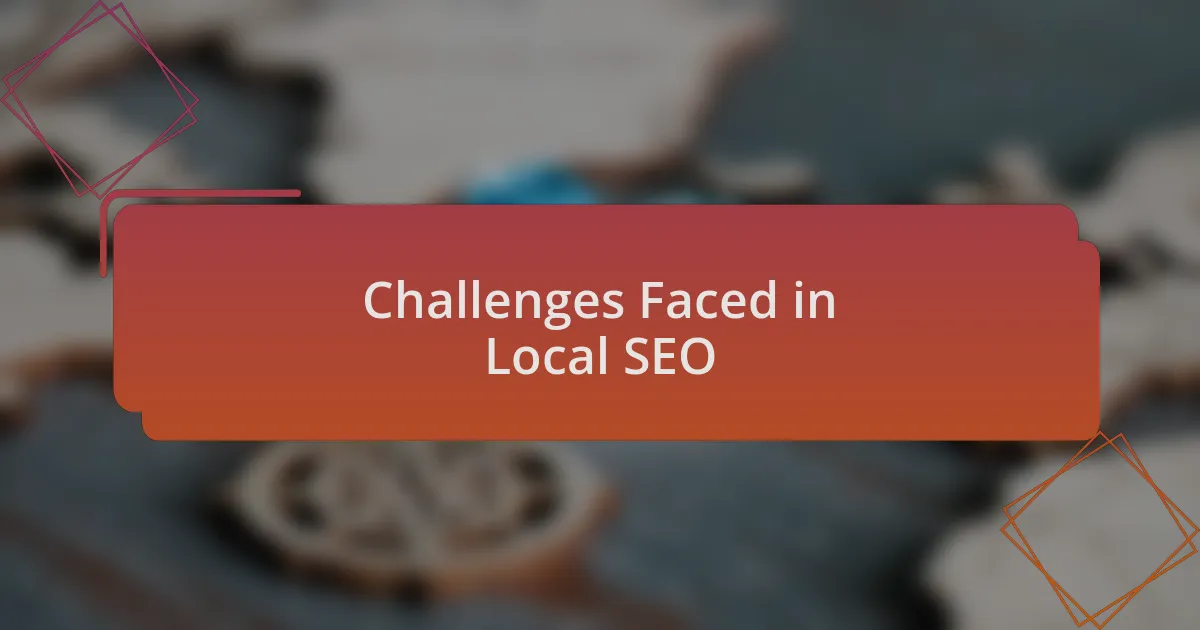Key takeaways:
- Local SEO enhances business visibility by focusing on relevance, proximity, and community engagement.
- Key components of local SEO include optimizing Google My Business, ensuring citation consistency, and using targeted local keywords.
- Positive online reviews and user-generated content significantly influence customer purchasing decisions and brand trust.
- Challenges in local SEO include managing online reviews, adapting to algorithm changes, and creating engaging local content.

Understanding Local Search Engine
When I first delved into local search engine optimization, I was struck by how essential it is for businesses aiming to attract nearby customers. It’s like having a signpost that directs potential customers to your doorstep. Have you ever wondered why your favorite local café seems to be buzzing with new faces? That’s the power of local search.
Understanding local searches goes beyond just optimizing for keywords; it’s about knowing the community. I recall a time when I helped a small florist boost their visibility. By focusing on local keywords and leveraging Google My Business, we transformed their online presence. It’s fascinating how a few well-placed, relevant terms can draw people who are looking for exactly what you offer.
Local search engines prioritize relevance, proximity, and prominence. When I updated my own website, I made sure to include not just the services I offered but also the unique aspects of my location. This approach not only enhanced my visibility but also helped me connect authentically with my community. Has your business reflected the true essence of your location in its online presence? Understanding these factors can make all the difference.

Importance of Local SEO
The importance of local SEO is something I have come to appreciate deeply through my own experiences. I remember optimizing a local bakery’s website; as soon as we implemented local SEO strategies, foot traffic increased dramatically. It was rewarding to see how targeted keyword usage and accurate location data transformed casual browsers into loyal customers.
Local SEO plays a crucial role in driving relevant traffic to businesses within a specific geography. I often think about how I prioritize local services myself. When I’m on the hunt for new places to eat or shop, I instinctively turn to search engines. This realization reinforces the fact that local SEO isn’t just beneficial; it’s essential for connecting with customers right in your neighborhood.
Moreover, being visible in local searches builds your credibility within the community. I witnessed this firsthand when a client’s retail store became a go-to spot simply because their online presence resonated with local values and interests. Isn’t it powerful to know that a well-optimized profile can turn your business into a local favorite? Engaging effectively with local SEO can truly elevate your brand’s reputation.

Key Components of Local SEO
When I dive into local SEO, there are a few key elements that always come to the forefront of my mind. First and foremost, Google My Business (GMB) is an absolute must. I remember helping a small coffee shop claim and optimize their GMB listing. It was amazing to see how a complete profile with accurate business hours, compelling descriptions, and engaging photos drew in new customers who were looking for a cozy spot nearby.
Another essential component is local citations. They’re like breadcrumbs that guide search engines to your business. I’ve encountered situations where ensuring consistency across all online directories significantly improved a client’s visibility. The more trustworthy data you present, the better Google perceives you. And let’s face it, consistency builds trust with potential customers too—don’t you prefer to rely on businesses with clear and reliable information?
Finally, local keyword optimization shouldn’t be overlooked. When I worked on a project for a plumbing service, targeting specific local phrases like “emergency plumber in [city]” made all the difference. Seeing the surge in organic traffic was invigorating. It reminded me that understanding and implementing the right keywords is crucial for ensuring your business is seen by those who need it the most. How can you expect your community to find you if you’re not speaking their language?

Strategies for eCommerce Success
When I think about strategies for eCommerce success, it’s impossible not to emphasize the power of optimizing product descriptions. I recall working with an online clothing retailer whose vague descriptions weren’t cutting it. After rewriting them to be more vivid and detailed—highlighting materials, fit, and styling tips—sales took a noticeable leap. Isn’t it fascinating how the right words can not only inform but also inspire a purchase?
Another crucial strategy is leveraging social proof through customer reviews. I once assisted a pet supply store that showcased glowing testimonials right on their product pages. It was incredible to see how potential customers warmed up to the idea of purchasing when they read genuine feedback from fellow pet owners. Don’t you think the opinions of others can be a powerful motivator in your buying decisions?
Lastly, I’ve observed that incorporating user-generated content, like photos from customers using your products, creates an authentic connection. I helped a home goods brand launch a campaign encouraging customers to share their setups online. The engagement was off the charts, with sales following suit because people love seeing products in real life. How often do we find ourselves more connected to a brand after seeing it in action?

My Local SEO Journey
When I embarked on my local SEO journey, it felt like stepping into uncharted territory. I remember trying to optimize a small bakery’s online presence, grappling with local keywords, and wondering if I could really make a difference. The moment I saw their Google My Business listing jump from obscurity to the top of local search results, I felt a surge of excitement. It dawned on me how crucial local visibility is for businesses like theirs; it was a game changer.
One particular challenge that stands out was my struggle with building local backlinks. I thought connecting with local bloggers and influencers would be easy, yet it took time and persistence to foster those relationships. I vividly recall the thrill of securing a local food blogger to write about the bakery, which not only drove traffic but also built credibility within the community. Have you ever experienced that rush when your hard work pays off in ways you didn’t anticipate?
As I delved deeper, optimizing for local search revealed a wealth of insights. I discovered that small tweaks, like ensuring the NAP (Name, Address, Phone number) consistency across platforms, played a pivotal role in enhancing local search rankings. Each step of refining their online presence built my confidence and fueled my passion for helping local businesses thrive. Isn’t it rewarding to witness a business flourish because of the right local SEO practices?

Challenges Faced in Local SEO
Local SEO comes with its own unique set of challenges, and one of the most frustrating for me was managing online reviews. I remember a period when a few negative reviews popped up for the bakery, and I initially felt defeated. It’s difficult to watch a business you care about struggle with its reputation, but I learned that responding thoughtfully to reviews can actually turn a negative into a positive. Have you faced similar situations where customer feedback sparked changes you hadn’t considered before?
Another hurdle I encountered was the constant algorithm changes from search engines. I recall spending countless evenings reading industry blogs and watching webinars, trying to decipher what each update meant for local rankings. It was a daunting task, especially when I felt that my hard work could be upended overnight. This experience taught me the importance of agility; being proactive rather than reactive in local SEO can make a world of difference. How do you keep up with these shifts in your SEO journey?
Lastly, I grappled with the challenge of local content creation. It sometimes felt like an uphill battle to consistently produce engaging blog posts that resonate with the local community. I vividly recall a community event I attended, where inspiration struck – I wrote about it and shared insights from local attendees. This not only boosted local engagement but also helped position the bakery as an integral part of the community. Have you found that local storytelling can open doors in the way your audience connects with you?